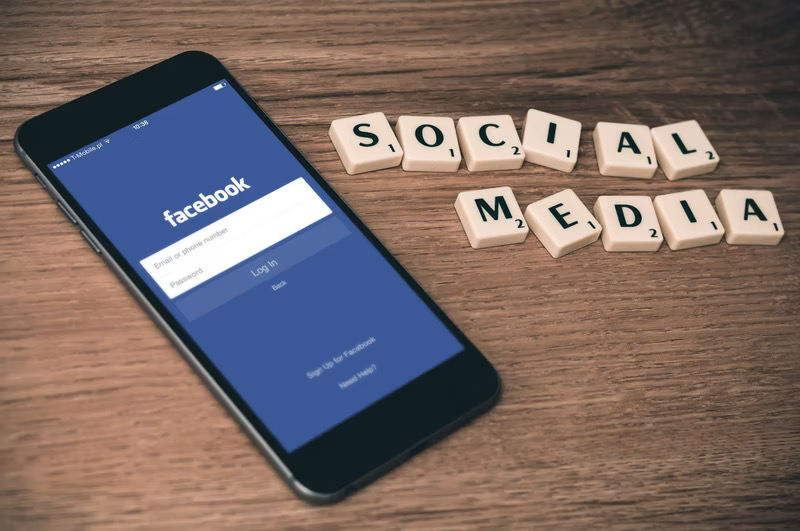
Author | Chenglin Pua (Malaysia) editor | Yu Baicheng typesetting | Wang Jilongyan
Facebook, a social networking giant headquartered in Menlo Park, San Mateo County, California, USA. In 2021, Facebook will have as many as 2.9 billion monthly active users, making it an out-and-out social kingdom. Yet since its market capitalization reached trillions of dollars, people have been asking where Facebook's future growth lies. Facebook also gave the answer, which is to transform into a metaverse company.
first level title
Facebook's revenue model relies heavily on advertising on its platform. For continued development into the future, Facebook has set its sights on the Metaverse. Facebook’s layout in the metaverse began seven years ago, and it acquired Oculus for $2 billion in 2014.
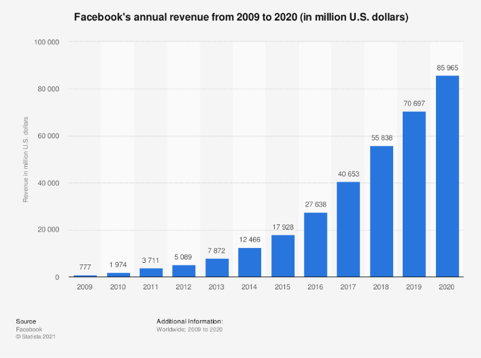
Facebook's Growing Market Cap
image description
Source: Satista
At the end of June 2020, Zuckerberg said that Facebook's future plans are far more than social media, but to build a metaverse. At the Q2 financial report meeting on July 29, 2021, Zuckerberg even mentioned the "Metaverse" 20 times, which shows how much he attaches importance to this emerging concept.
At the meeting, Zuckerberg also gave a specific timetable, hoping to transform Facebook into a metaverse company in about five years. He said that the construction of metaverse is the vision of many technology companies and even the entire technology industry. It can be regarded as a revolution after the mobile Internet, but this is not something that can be realized by one company.
first level title
hardware layout
hardware layout
In the future, people will enter the Metaverse through VR/AR connection. This technology solves the problem of "showing" the virtual world to us. Facebook is significantly accelerating its VR/AR hardware layout. In 2017, its Oculus VR department had more than 1,000 employees, and its global employees totaled 18,770, accounting for more than 5% of its employees. By the beginning of 2021, the social network employed 58,604 people, and those involved in VR/AR research and development accounted for nearly 20% of the total number of employees.
Oculus is a subsidiary of Facebook. The main task of this department is to develop and produce virtual reality equipment. In July 2012, Oculus launched in Irvine, California. In April 2012, Oculus launched the Rift, a virtual reality device designed for video games, and launched a Kickstarter campaign in August, raising $2.4 million.
In October 2020, Oculus released the Oculus Quest 2, priced at $299. Once the product was launched, it received a lot of praise. In addition to its relatively very affordable price, hardware and software upgrades, smooth picture quality and very little dizziness have become its selling points. Many VR/AR device websites list Oculus Quest 2 as the number one VR/AR device today.
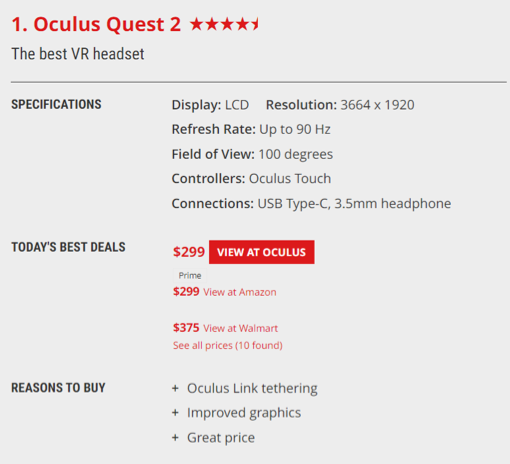
image description
Facebook's silent efforts in VR/AR have also paid off. Facebook's revenue from VR-related industries continues to grow, whether it's hardware, software or gaming revenue. Facebook sold a total of 1.4 million Oculus Quest 2 devices in the fourth quarter of 2020. Based on its price of $300, Oculus Quest 2 generated a total of $420 million in revenue. Facebook generated a total of $28.1 billion in revenue during the quarter, and Oculus Quest 2 accounted for about 1.5% of Facebook's total revenue for the quarter.
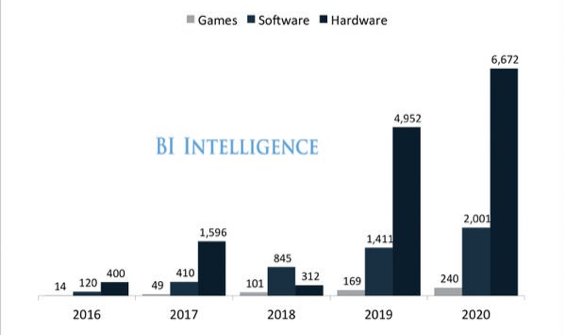
Source: Cantor Fitzgerald, in millions of dollars
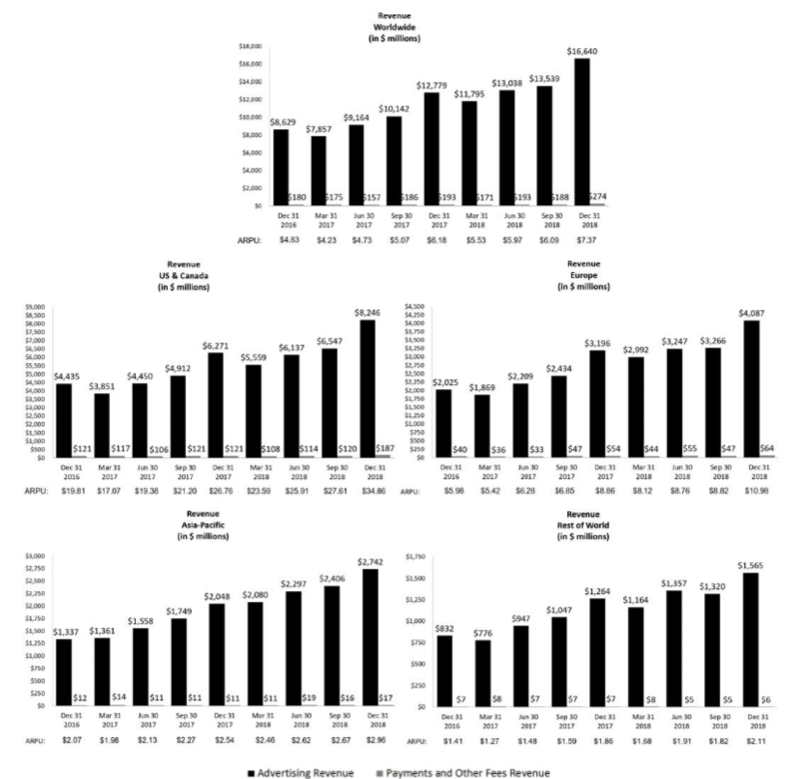
Facebook income, black is advertising income and gray is other income
Source: Facebook's 10-K filing with the SEC
first level title
high capital investment
Now that Facebook is going to transform into a metaverse company, Facebook will invest in this aspect. In 2014, Facebook acquired Oculus for $2 billion to lay out AR/VR hardware. In 2017, Facebook announced that it would invest another $3 billion within 10 years, trying to bring AR/VR to hundreds of millions of users.
In early 2020, Facebook announced that from 2014 to early 2020, it had invested nearly $5 billion in AR/VR business.
Facebook's investment in the metaverse can be said to be beyond the reach of other small and medium-sized enterprises. The high investment of Facebook will also lead to a place for Facebook in the ecology of the Metaverse in the future. But this will also lead to a problem, that is, the metaverse is likely to be monopolized by some giant companies. After all, giant companies have the capital and resources to build the metaverse. What's more, Facebook has made up its mind to transform into a Metaverse enterprise.
first level title
Facebook's plan to create a metaverse
Zuckerberg revealed some of Facebook's plans for the Metaverse investment in the earnings conference. Facebook will sell the hardware, but that's not where the real money will be. Zuckerberg said on the earnings call that Facebook's goal is to sell its devices as cheaply as possible and focus on making money from commerce and advertising in the Metaverse itself.
"Our business model isn't going to be primarily around trying to sell devices at a premium price or anything like that, because our mission is to serve as many people as possible," Zuckerberg said on the earnings call. "So we want to make our Do everything as affordable as possible so that as many people as possible can participate, and then scale the digital economy within that.”
Facebook will do its best to improve the technology and enhance the user experience. Zuckerberg said that people's willingness to join the metaverse will only increase if the hardware can provide users with a real sense of presence in the digital world. Advertising will still play a role, but Facebook will also focus on the sale of virtual goods. Zuckerberg said that advertising in the Metaverse would be a "key part" of Facebook's strategy to profit from the Metaverse, but he was more bullish on commerce in the digital world.
Many people consider some of today's video games like Minecraft, Roblox, and Fortnite to be early versions of the Metaverse. Those free-to-play games make money by selling virtual goods to players. Zuckerberg hinted on the earnings call that Facebook would replicate that strategy, making money in its own metaverse, taking a cut of every deal.
Zuckerberg believes that digital goods and creators will be a huge source of profit. Metaverse experiences will all revolve around being able to experience experiences that the real world cannot. By owning unique virtual avatars, digital clothing, and digital goods, people can experience experiences that cannot be experienced in the real world, such as dressing themselves as Superman and enjoying the feeling of flying in the air.
According to Facebook's official website, Facebook will work with experts in government, industry, and academia to think about the problems and opportunities in the Metaverse. For example, the success of the Metaverse depends on building strong interoperability across services, thus requiring coordination that different companies can work together to build the Metaverse. Facebook is also working in the following areas:
Economic Opportunity: How to Give People More Choice, Encourage Competition, and Sustain a Thriving Digital Economy
Privacy: How to minimize the amount of data used, build technology to enable privacy-preserving use of data, and give people transparency and control over their data
Safety and integrity: How to keep people safe online and give them tools to take action or seek help if they see something uncomfortable
Equity and inclusion: How to ensure these technologies are designed to be inclusive and accessible
Facebook has partnered with Seoul National University and the University of Hong Kong to focus on Metaverse research for safety, ethics, and responsible design. Other topics such as privacy and data use are explored in collaboration with the NUS Law School. Facebook and Howard University will conduct research on the history of IT diversity and how it informs access and economic opportunity in the Metaverse.
first level title
Facebook's Currency Dreams
Since it is to build a world, the participation of currency is indispensable. And which currency should be used in the metaverse is probably a very controversial topic. In order to seize the opportunity and enable the metaverse it built to use its own currency, Facebook has arranged for the launch of related currencies early on, and Libra is a part of its plan. However, this plan has repeatedly hit a wall, but Facebook still does not give up its "currency dream".
Libra is a blockchain-based permissioned payment system proposed by Facebook. In May 2019, Facebook confirmed the deployment of cryptocurrency. On June 18, 2019, the project was officially announced as Libra. A release is planned for 2020, but only basic experimental code has been released.
There is an association behind the plan, made up of major companies. Each association member needs to first inject $10 million to support the value of Libra. However, the plan has never been approved by regulators. On July 15, 2019, Facebook announced that it would not launch the currency until all regulatory issues had been met and Libra had been "appropriately approved."
Many central banks, finance ministers, legislators, and privacy protection agencies around the world have questioned Libra and listed a number of issues related to Libra, including money laundering, terrorist financing, and financial stability.
As of February 2020, only a few companies from the association are still participating.
Table: Members of the Libra Association (as of September 2021)
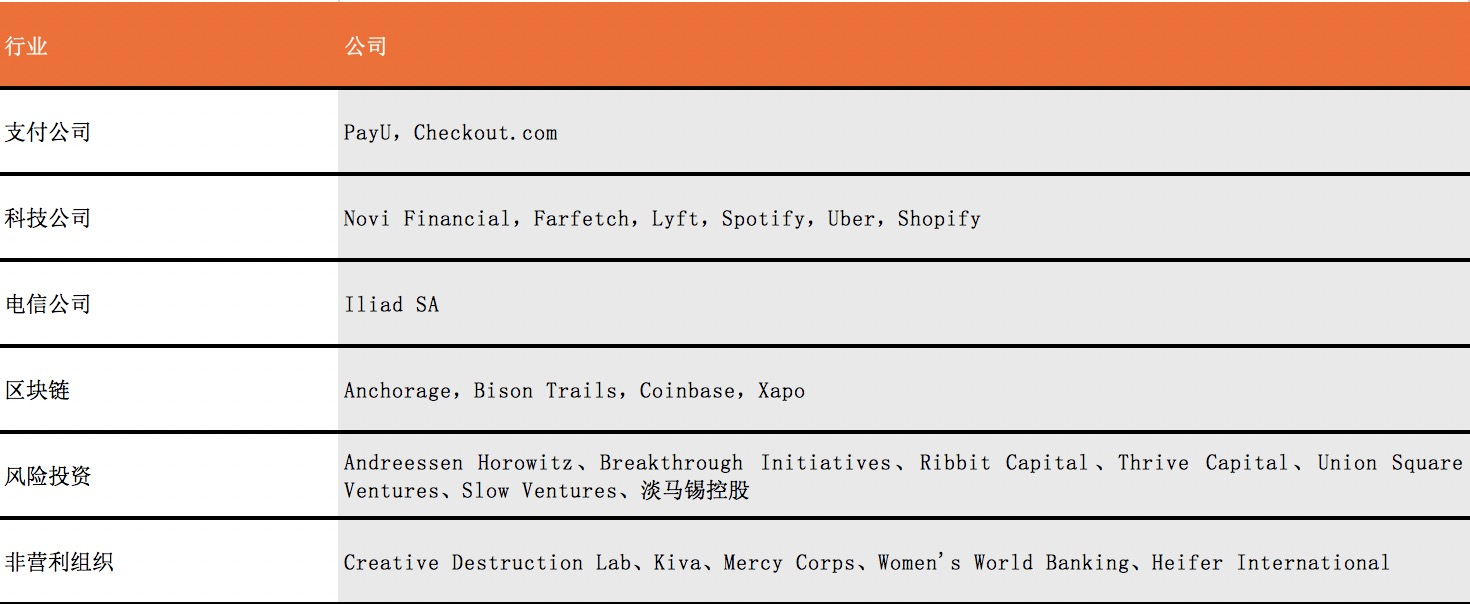
image description
01Blockchain finishing
Although repeatedly hit the wall, Facebook still does not give up its "currency" ambitions. On August 27, 2021, Facebook revealed that it will go all out and hope to launch the digital wallet "Novi" by the end of 2021 to help the company's 2.9 billion users store digital cryptocurrencies. And Diem (Libra after renaming) will be launched after Novi.
The launch of the digital wallet "Novi" also means that Facebook will directly participate in the $2 trillion cryptocurrency market in the next few months, and billions of people may be exposed to digital currencies for the first time. Currently, the digital wallet market is still dominated by cryptocurrency wallet operators such as Coinbase and Gemini.
Even though there are many thorns on the road to launching its own currency, Facebook still has not given up its ambitions. The regulatory level is an obstacle that Facebook has always been unable to avoid. Even if the United States approves it, will other countries follow suit?
first level title
Facebook in trouble off the court
The Metaverse has been dubbed by many as the "Next Generation Internet". The Metaverse is able to connect many people together. As a platform, Metaverse is bound to record a lot of private data. However, Facebook has been in trouble recently when it comes to privacy issues.
On October 4, 2021, a former Facebook employee (Frances Haugen) publicly accused Facebook of "putting interests above safety" in a TV interview. She said that Facebook had known for a long time that its products were promoting hatred and harming children's mental health, but they always ignored it for the sake of profit.
The former employee called for Facebook to be regulated. She said: Facebook has shown time and time again that it chooses profit over safety, and it uses our safety to profit. The existing version of Facebook is tearing apart our society and creating racial violence across the globe.
She previously disclosed documents anonymously to the Wall Street Journal and members of the U.S. Congress, which showed that Facebook has long known that its products, such as the social networking site Instagram, are harmful to young girls. The filing also reveals Facebook's research, which found it was easier to stoke people's anger than other emotions. Facebook found that by switching to a safer algorithm, people spent less time on the site, clicked fewer ads, and made less money.
The document also disclosed that during the 2020 U.S. presidential election, Facebook realized that content that provoked anger might be dangerous, so it switched to a safer system to reduce the risk. However, once the election was over, they reverted to the original system, or changed back to the original setting, prioritizing growth over safety.





